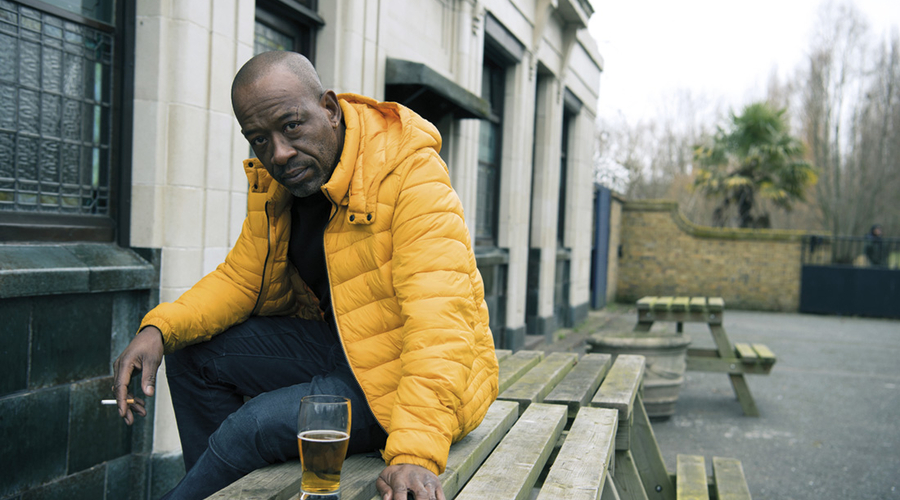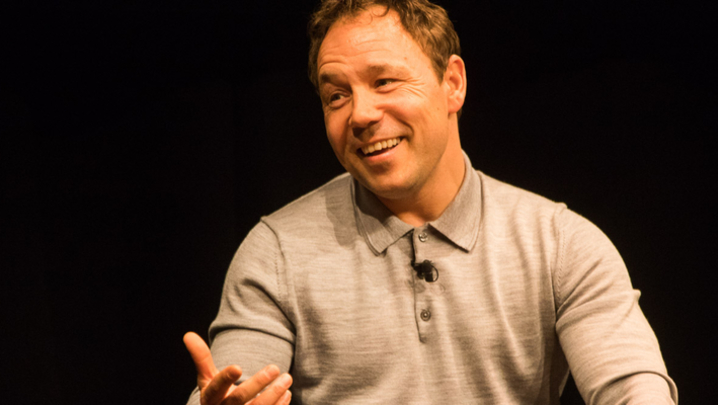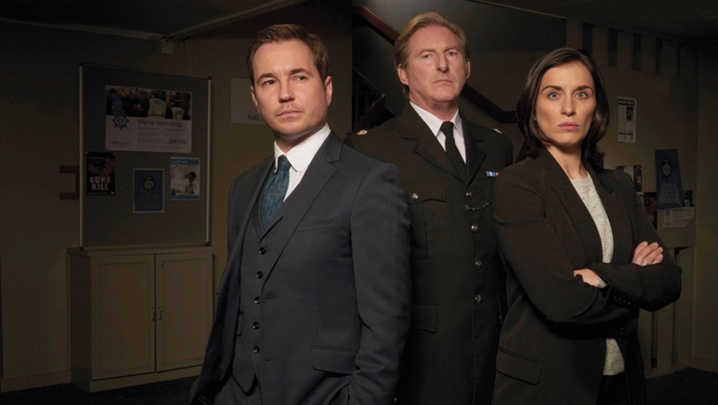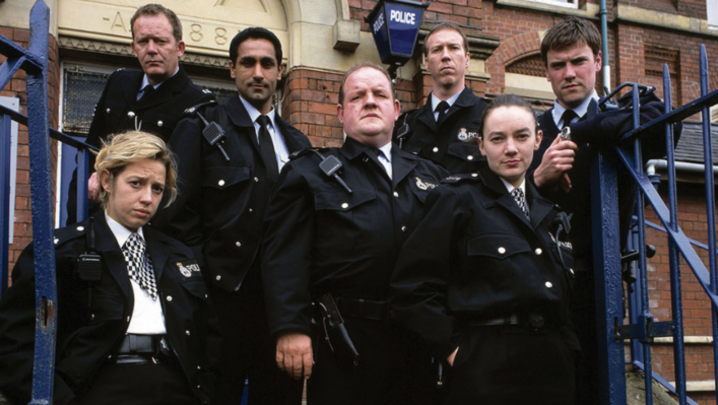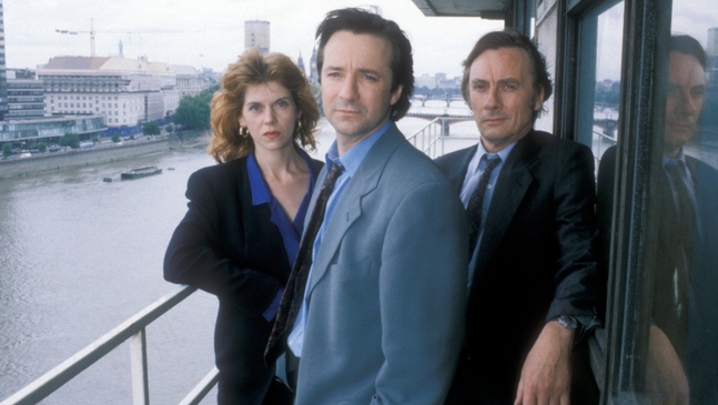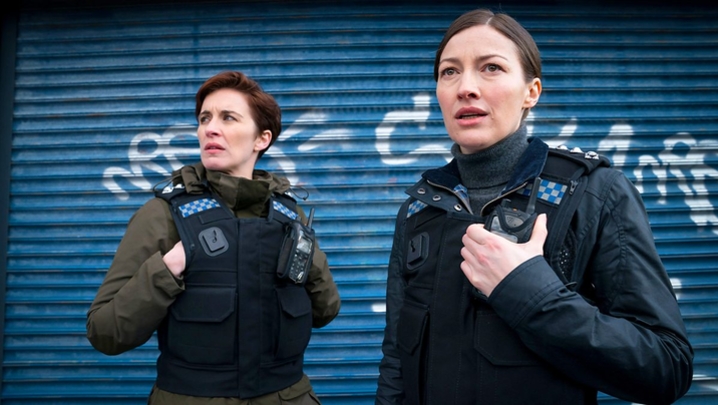Lennie James’s Save Me is one of the year’s most fêted dramas. He tells Andrew Billen why, as a black man, it’s become easier to write successfully for TV
There is a scientific way to calculate how much a television audience appreciates a show. An “appreciation index” involves panels, scores out of 10, and demographic weighting. Now, however, there is another way: just take note how quickly an audience comes back for more.
When Sky released Lennie James’s drama Save Me (the possessive apostrophe is because he created, wrote and starred in it) as a box set on the last day of February, it took a week for 700,000 viewers to watch all six episodes.
Within a fortnight, more than a million had done so, each hoping to the very end that James’s wayward, yet authoritative, protagonist, Nelly, would track down the kidnapped daughter he barely knew. It was Sky’s most greedily binged box set ever – and, I hazard, will have cost it rather less than Riviera, say, or Fortitude, neither of which received Save Me’s critical appreciation.
On the phone from Austin, Texas, where he is filming Fear the Walking Dead, for which millions more know him, James is chuffed. But he says that ratings are not the way he wanted to judge his show’s success. It was about whether Save Me was what he intended it to be – whether, in the actors’ phrase, they had left it in the room. “And I thought we left it all in the room.”
There was something special about Save Me beyond its bingeability. It was hinted at when James publicly responded to viewers’ disappointment that Nelly’s daughter was not rescued in the final episode. That, he said, would have been “the television ending”. Now, in his deep, slow, kind-yet-emphatic voice, he talks about television’s new golden age, how the plethora of quality implies its own rules and shorthand, and knowingly self-references them.
“What was important for me,” he says, “was that it was a thriller set in a real place. It wasn’t a thriller set in a TV version of a real place. The allowance that I was making to TV was that it was a thriller, but part of the way I wanted to tell the story was to set it in a place of reality. It wasn’t like my other day job, which is on The Walking Dead and its spin-offs. It wasn’t trying to tell a story of real human emotion in a fantastical world, or a world dealing with a fantastical event.”
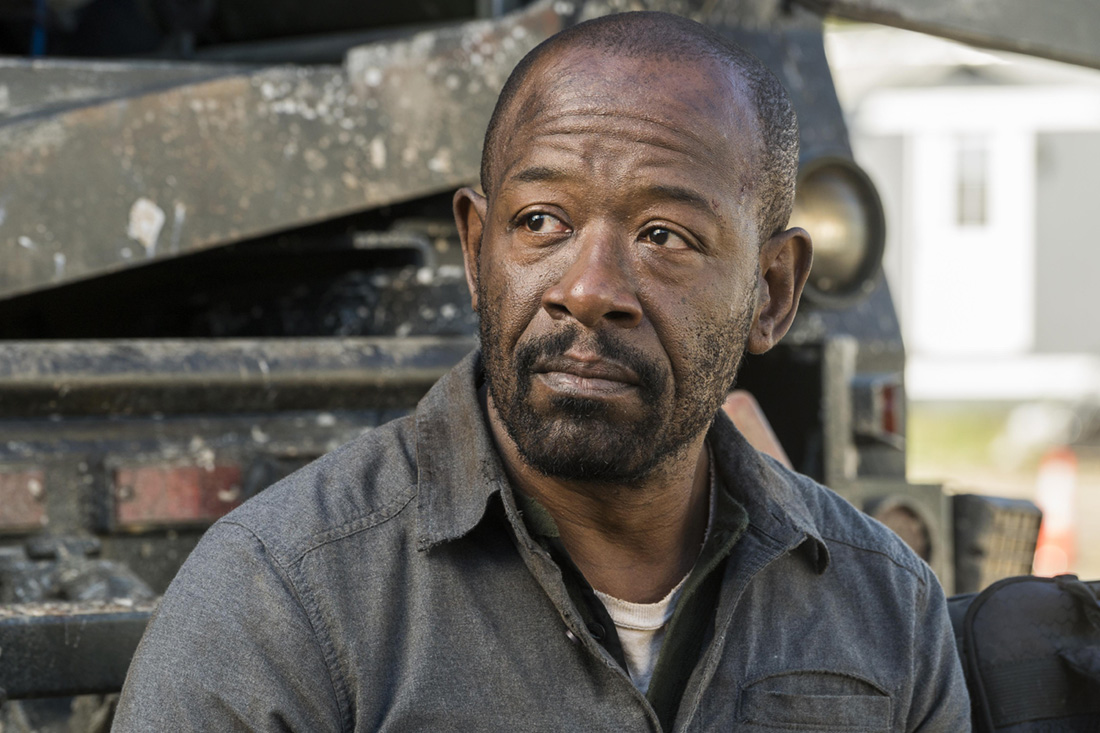
For anyone who knows London, Save Me provided two jolts of recognition. One was the sight of its drizzly council estates and sticky-carpeted, south-of-the-river pubs. The other realisation was that we barely see this London on our screens.
Might the same be said of Nelly, the commanding black guy in the white pub? “Save Me is, on one level, the closest I’ve got to something that has everything and nothing to do with race. And if I was going to do that, then Nelly needed to be black.”
Everything and nothing? “One of the things that I believe makes the piece authentic to London is that you don’t just know guys like Nelly, you know black guys like Nelly.
“The particular black guy that Nelly is, is, for me, specific to that community: a first-generation black man who has grown up in London in a specific way. He is not part of a black community. He is part of a mixed, multiracial community in London, where he is very much in the minority but where, as far as that is concerned, he punches slightly above his weight.”
James is surely right. You see black actors playing doctors and lawyers in TV drama, and you certainly see them playing drug-dealers and pimps, but have you ever seen a Nelly before?
“I was trying to be as specific to time and place as I possibly could in order to tell a universal story,” he says.
In these interviews, I am now hearing the specific-universal paradox frequently enough to make me think that it is becoming received wisdom, but we should remember how unreceived it once was.
Consider the previous drama James wrote for television, Storm Damage, a one-off about the battle for a black lad’s soul. BBC Two aired it in 2000 and it won the RTS award for Single Drama. Yet, it took six years to reach the screen, and only after James resisted attempts to bury it in a midnight slot or amputate it to 30 minutes for a schools broadcast.
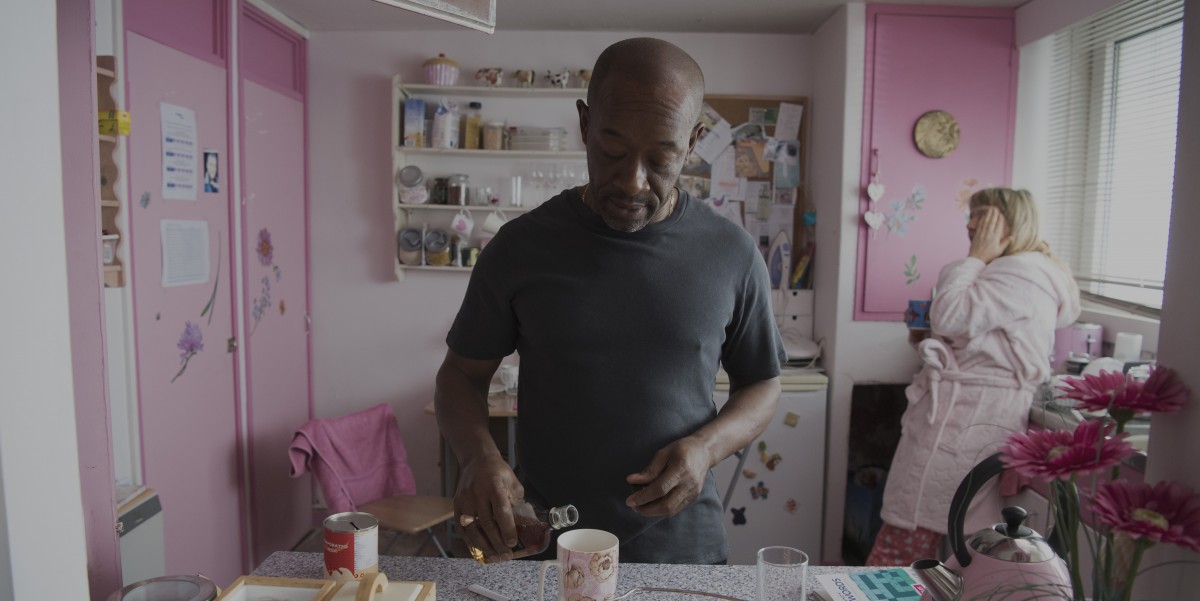
(Credit: Sky)
He thinks it would be easier to get on today – Sky commissioned Save Me enthusiastically. That is partly because James is now box-office, and partly because there have been precedents in the meantime for black-youth crime stories, including BBC Films’ Bullet Boy and Channel 4’s Top Boy (both of which, like Storm Damage, featured Ashley Walters), but back then…
“Storm Damage was, again, a very specific story told about very specific people in a very specific world, but it was a universal story, too, and convincing people that this was possible was, at that time, very hard.”
Because of the colour of the leads? “Absolutely, that was part of it. To say it wasn’t part of it would be a lie. Because, at that time, it was harder for people to get their heads around that.”
The drama ended with Ashley Walter’s character stabbed to death. Play-wright Roy Williams’ Fallout on Channel 4 eight years later began with a stabbing of a young black man. At the time, James, who played a detective in it, wrote an open letter to young knife users. It concluded: “Be a better man.”
“At a time when our girls are being brought up to inhabit and take ownership of the world in a way that generations before them weren’t afforded the space and opportunities, we seem to be making that passage from boyhood to manhood harder and harder for our male children,”
Ten years on, after a cruel winter and spring of knifings, things seem only to have worsened. James is the father of three girls with his wife, the sometime actor and publicist Giselle Glasman, whom he met in youth theatre. All have gone to good universities in the US, where the family live when not in London.
“At a time when our girls are being brought up to inhabit and take ownership of the world in a way that generations before them weren’t afforded the space and opportunities, we seem to be making that passage from boyhood to manhood harder and harder for our male children,” worries James. “It’s almost like we’re culling them or allowing them to be culled.”
Some, I say, might argue that the culture of violence is not helped by shows such as The Walking Dead and Fear the Walking Dead, in which, off and on since 2010, James has starred as Morgan Jones.
He agrees that The Walking Dead is a violent show: “It does show violence, but I don’t believe it’s an example of irresponsibility. My character is front and centre of the argument for not killing.”
Morgan carries a staff, I say, sharpened at one end, blunt at the other.
“It’s a perfect symbol,” he agrees. “I’m not saying Morgan is up there with Mahatma Gandhi or Martin Luther King, but he is living and existing within a violent world and he is trying to take a stand against it.”
And the staff carries connotations of Christ the shepherd? “And Moses, but I don’t want to go too far down that route or it will fall apart. After all, it is zombies.”

(Credit: BBC)
James was born in Nottingham 52 years ago but he, his Trinidadian mother, Phyllis, and elder brother, Kester, moved to London. After a long illness, Phyllis died when her younger son was just 10, and the boys were placed in a large, council-run home, filled with “vagabonds” in Tooting Bec. It was an experience, he has said, that was not as Dickensian as it sounds. His father, he never knew, nor was his absence explained.
And here, I say, is Nelly, an absentee father, who comes back into his daughter’s life too late. James swears it is not an “itch he needs to scratch”. “It’s a very weird thing when that kind of comes up. As a dad, I’m sure my kids couldn’t imagine the absence of me, but that’s partly because they knew me and they’ve known the role I’ve played in their lives.
“I have no memory of my father and, genuinely, have never really felt the absence of him. I might be deluding myself. I might, you know, sit down in the psychiatrist’s chair and they’ll make everything about the absence of my dad. But I have not consciously or, I think, subconsciously – although how would I know? – spent a huge amount of time in any way, shape or form, missing him.”
James wrote his first play, aged 17, within a year of a successful audition at the Cockpit Theatre in Marylebone (he has said that he was pursuing a girl there). Trial and Error, about the kangaroo courts convened by children in care, won a National Youth Theatre playwriting competition.
He subsequently wrote for television, but it was his acting career that took off. He appeared in everything from Spooks to Cold Feet, and in 24 Hour Party People as the co-founder of Tony Wilson’s Factory Records. However, it was not until the 2003 Channel 4 prison drama Buried, that he was cast in a lead role, and, while it was admired, the show was cancelled after one series. In 2005, he left for America.
“I went because I needed a new challenge, I needed to broaden my ambitions,” says James. “I felt that one of the things that I was butting my head against, back there in the UK, was the sense that people had kind of decided what my ambition should be.
People were going, ‘You should be happy. You’re one of the go-to black actors in the country.’
“But that wasn’t the limit or the pinnacle or the point of my ambition. I wanted something else.”
He soon noticed that in American series – Jericho, for instance – he might be cast as a specifically African American character, but he would not be peripheral. “The writers weren’t frightened about writing a black character who was front and centre. And, at the time, that wasn’t happening nearly enough for me back in the UK.
“The weird thing that happened was that, as my profile rose in America, I was able to be the go-to actor back home in England, as opposed to the go-to black actor.”
In 2010, he was cast as the corrupt copper in the first season of Jed Mercurio’s Line of Duty and was nominated for an RTS award. Mercurio, who later made him his lead in Sky’s short-lived Critical, credits him with pushing the cast and director to shoot a long interrogation scene in a single take, now a series trademark.
If you hadn’t noticed, James likes to take television to where it has not been before: places where black lives matter, where realism is valued and where acting can hold the screen. It is never his intention to be ahead of the curve, he insists – “It’s just nice when you are proved right.”
Sky has commissioned a second series of Save Me. And that, he says, was his intention for it all along.
James’s journey
Lennie James, actor, playwright, screenwriter
Born: 11 October 1965
Lives: London and Los Angeles
Mother: Phyllis James, died when he was 10; brought up in London; one brother
Family: Married to Giselle Glasman, actor and then theatre PR; three daughters
Education: Guildhall School of Music and Drama
As a film actor: Snatch, 24 Hour Party People, Blade Runner 2049
As a TV actor: Undercover Heart, Cold Feet, Buried, Jericho, Spooks, The Prisoner, Hung, Line of Duty, Critical, The Walking Dead, Fear the Walking Dead, Save Me
As a writer: Storm Damage, Save Me
Awards: BFM Film and Television Awards Best Male Performance in a Film 2002, for Lucky Break; Online Film and Television Association Awards Best Guest Actor in a Drama 2013, for The Walking Dead
Watching: Peaky Blinders; Real Time with Bill Maher; ‘the odd episode’ of Law & Order
Reading; Walter Mosley, Steven Bochco (of Hill Street Blues)
James on TV: ‘If this is a golden age of television it is happening, in the main, in the same place that the golden age of cinema happened: America and in Hollywood.’
Jed Mercurio on James: ‘All the [interrogation scenes in Line of Duty] were shot in single takes. The actors have Lennie James to thank for leading the way.’

